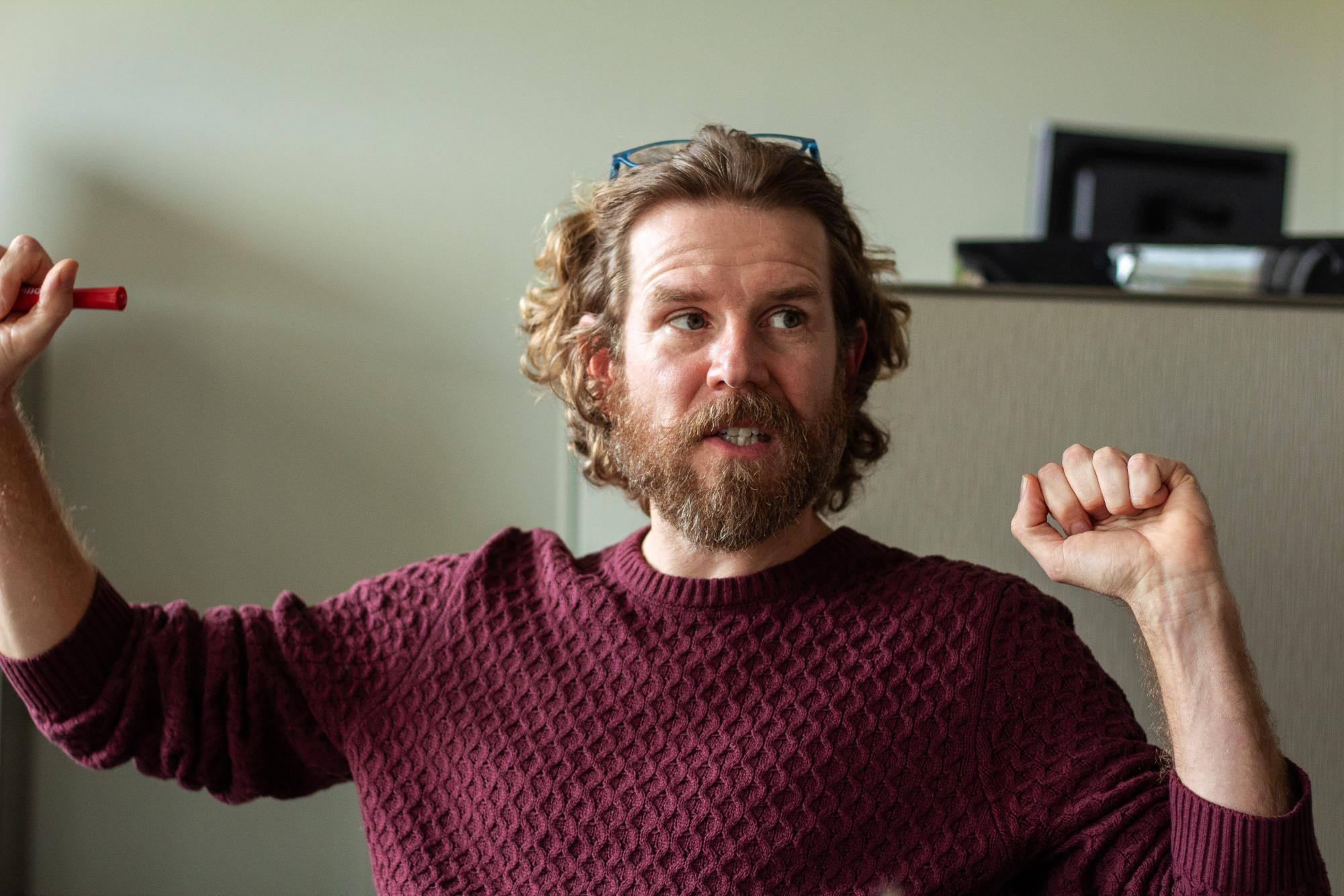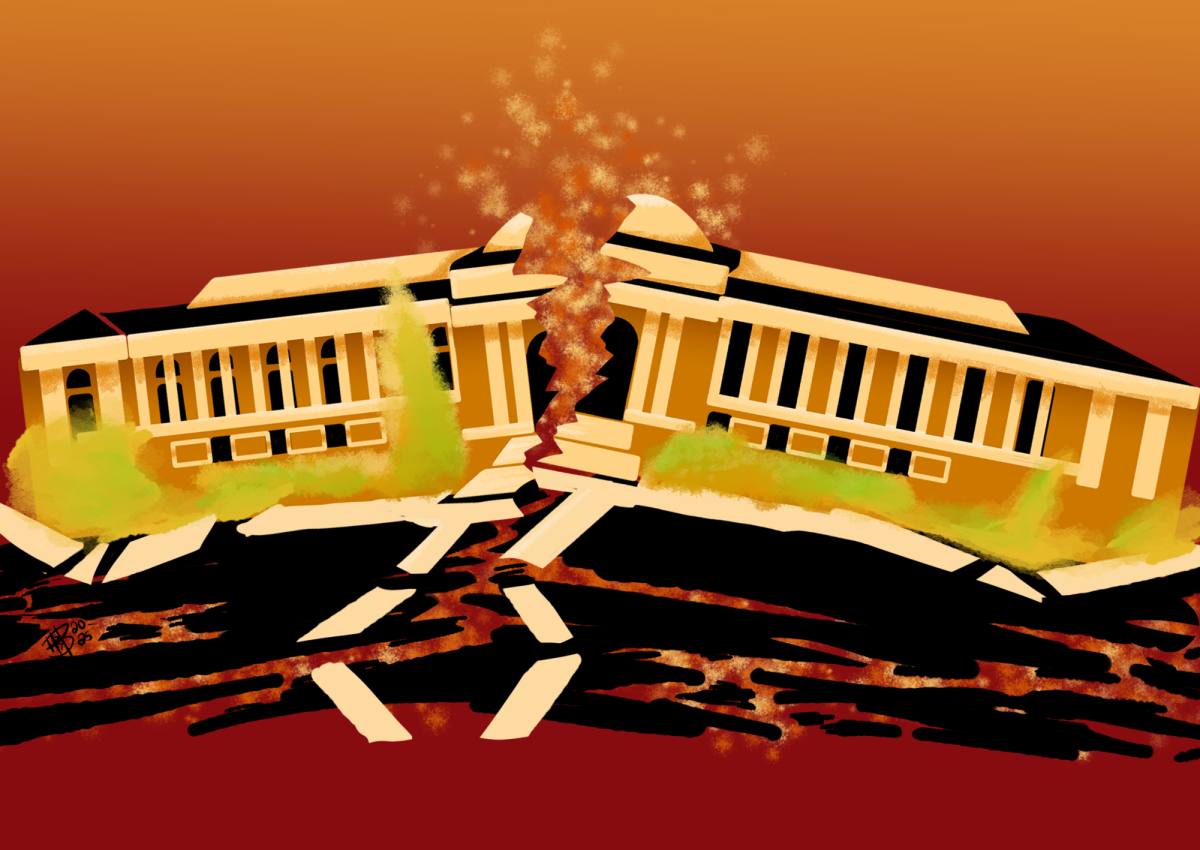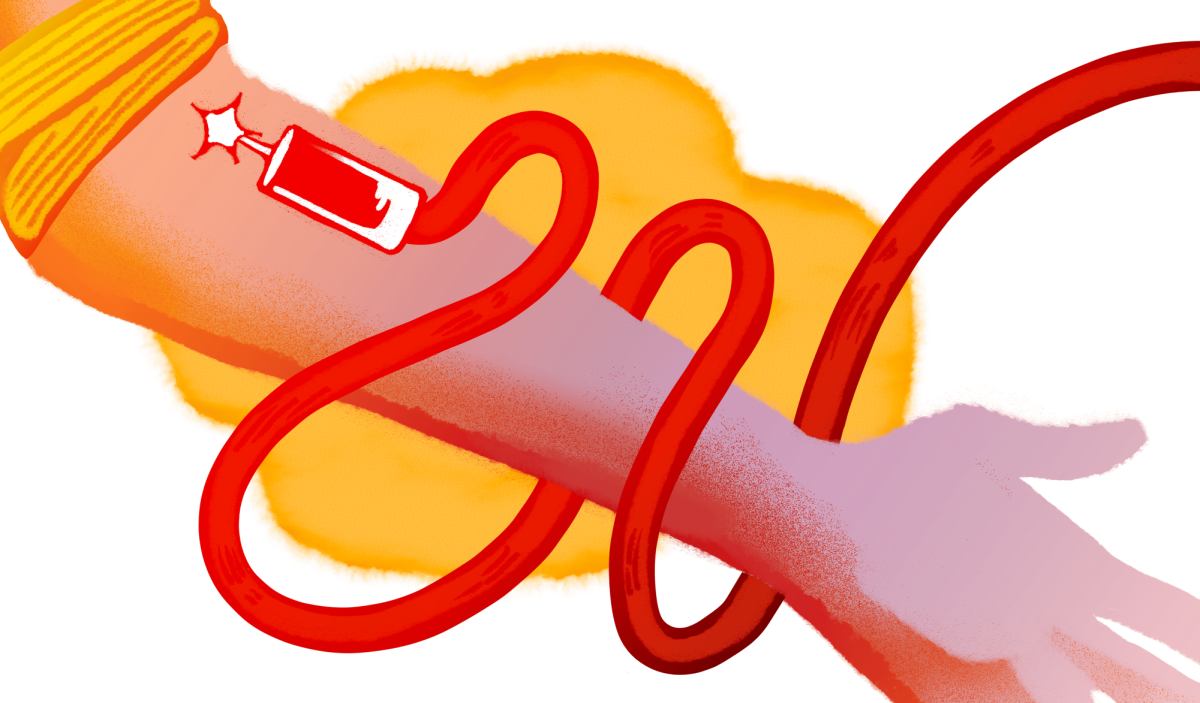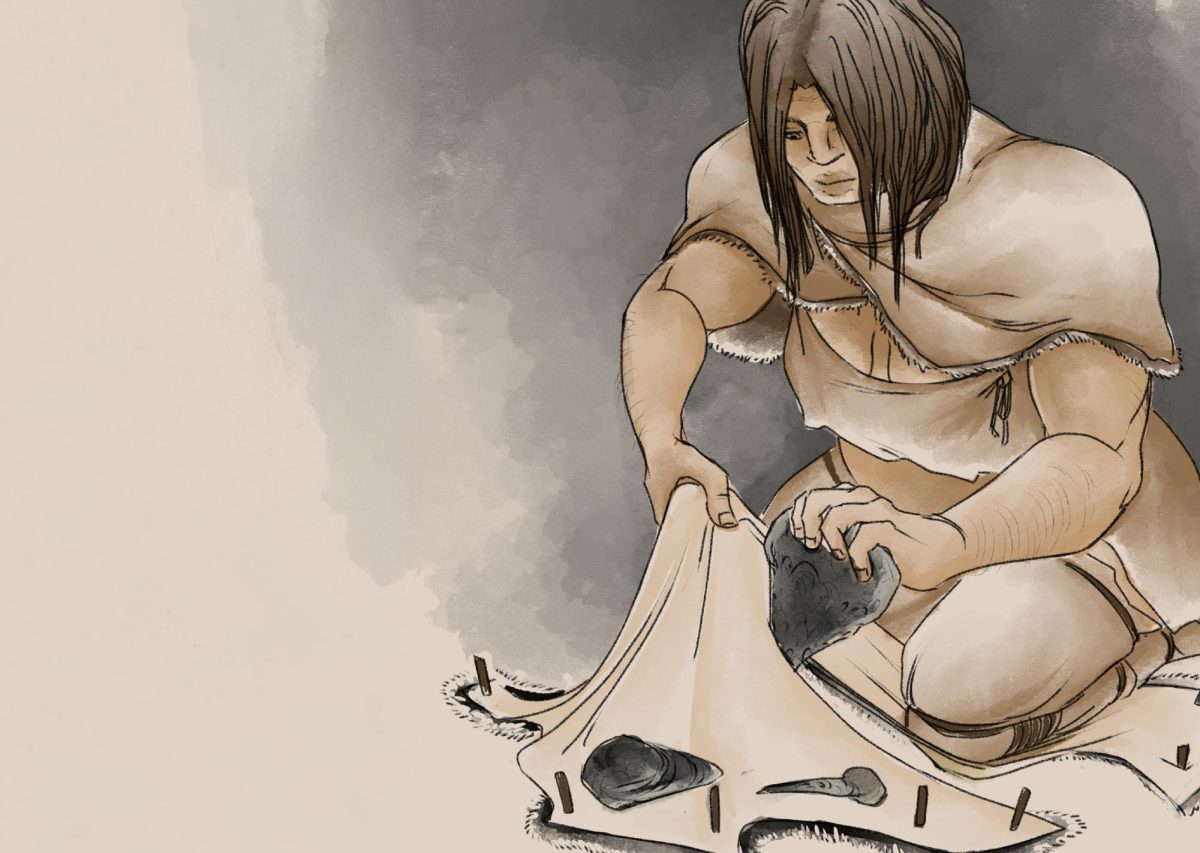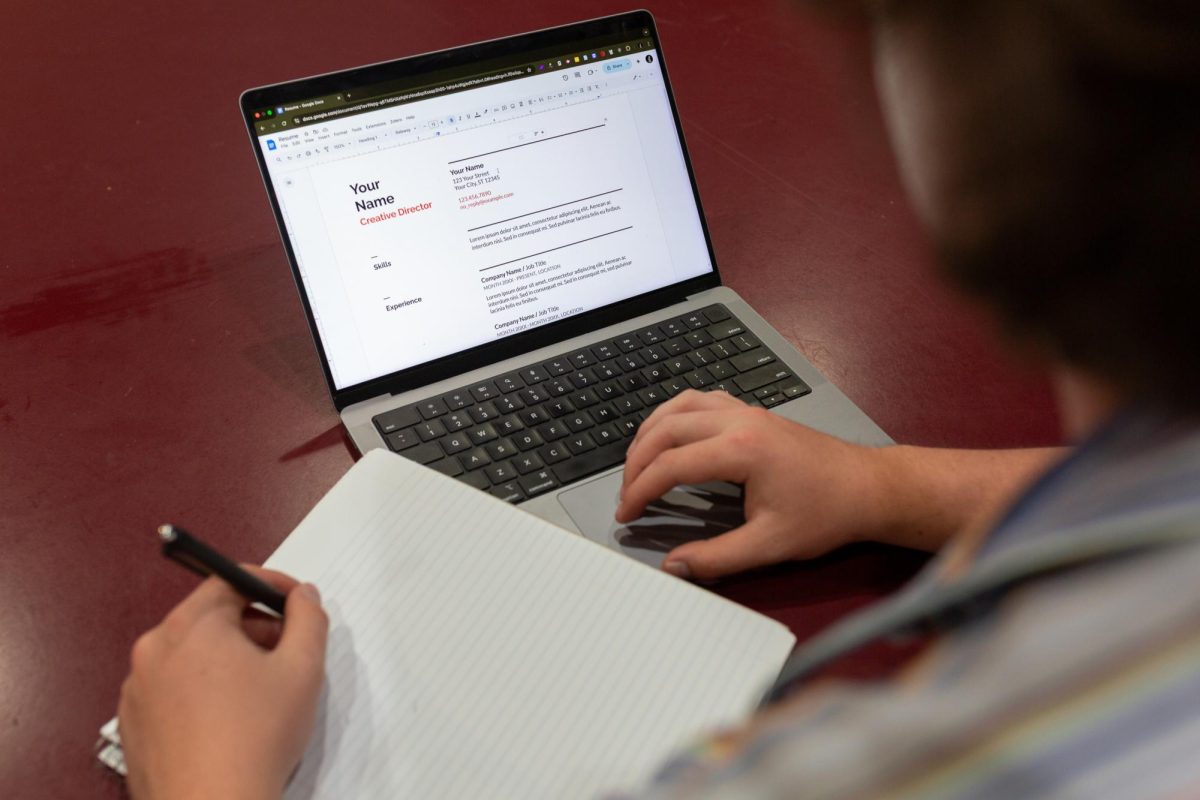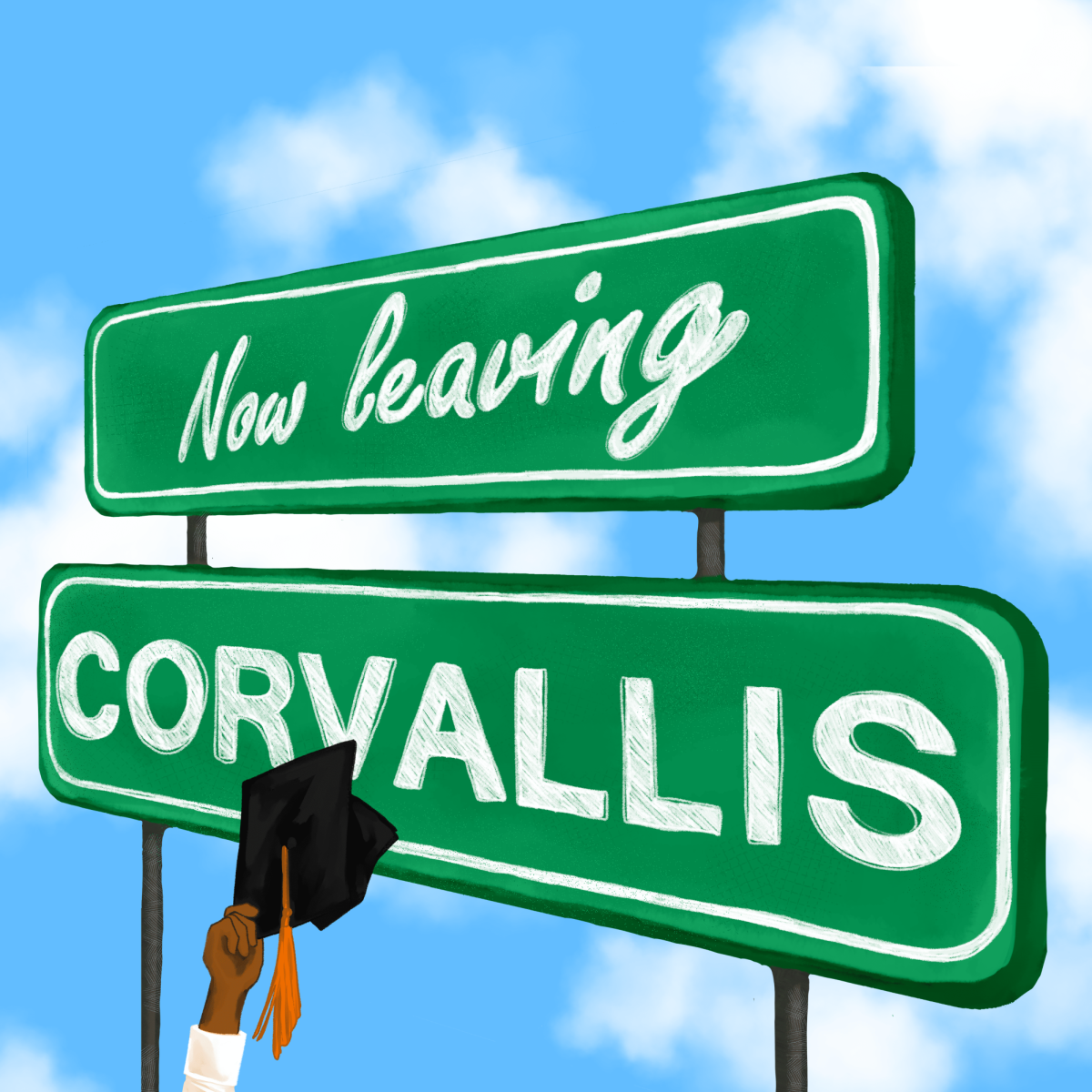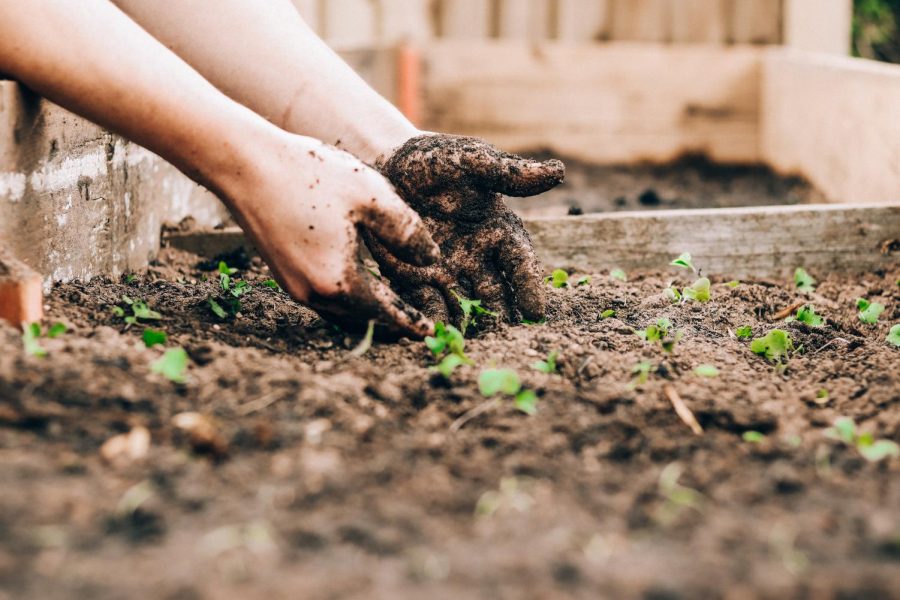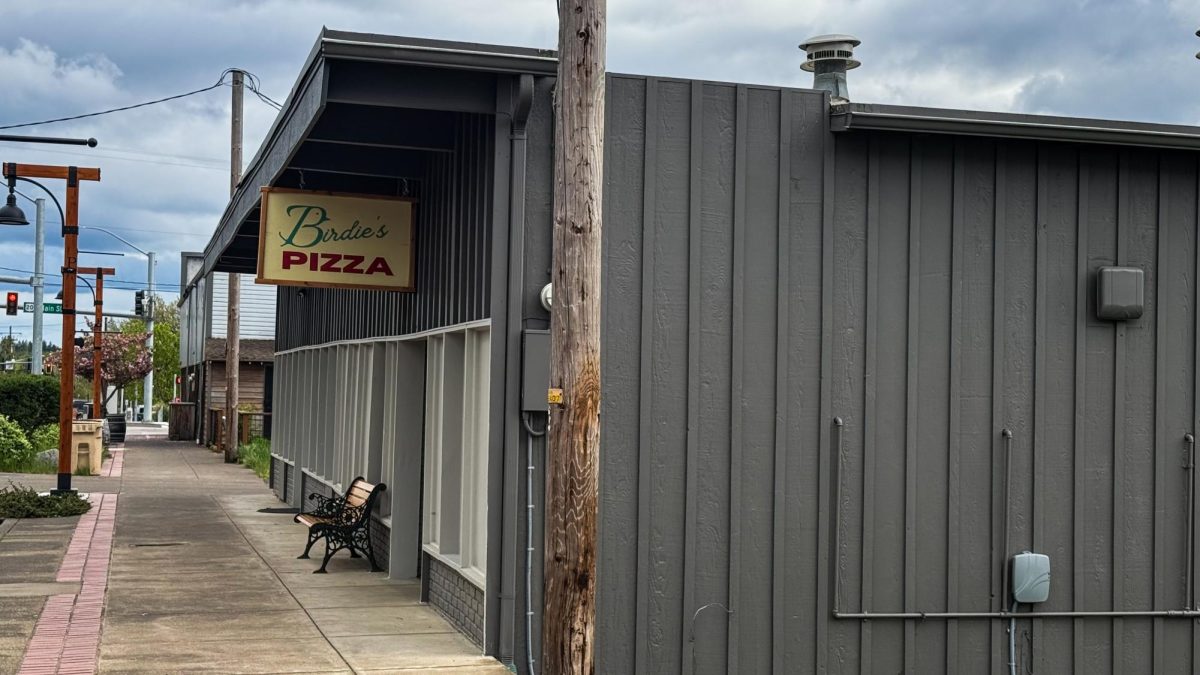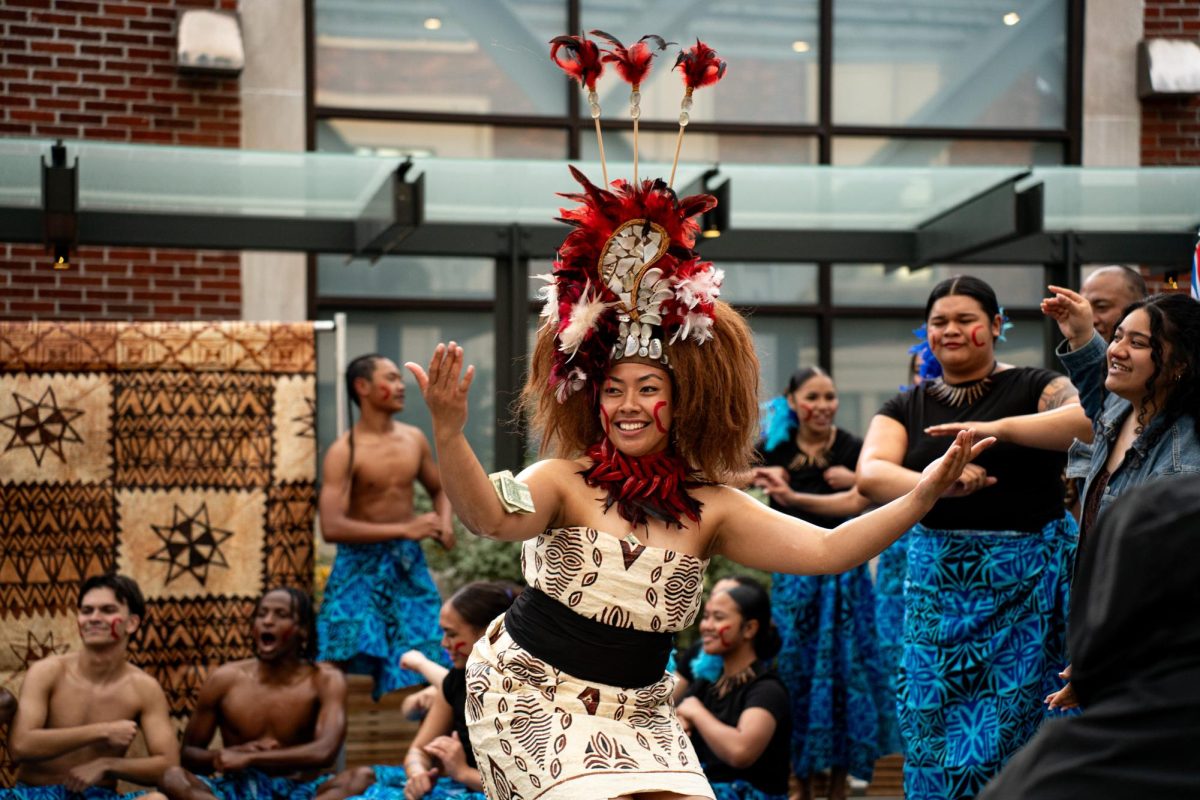The Willamette River that flows through Corvallis provides a scenic location to take a swim and be in nature. David Wrathall spends a lot of his time collecting river rocks while he connects with the world around him.
Sitting on a table in his joint office is a carefully crafted pile of colorful rocks, featuring many bobblehead wooden turtles.
“I am evangelical about getting out into nature,” said David Wrathall, assistant professor of natural hazards. “Not like for exercise. Not for you know, science, but just just to be there.”
Wrathall is an associate professor at Oregon State University researching the effects of climate change. He has worked on projects across the topic, most notably on the Intergovernmental Panel on Climate Change.
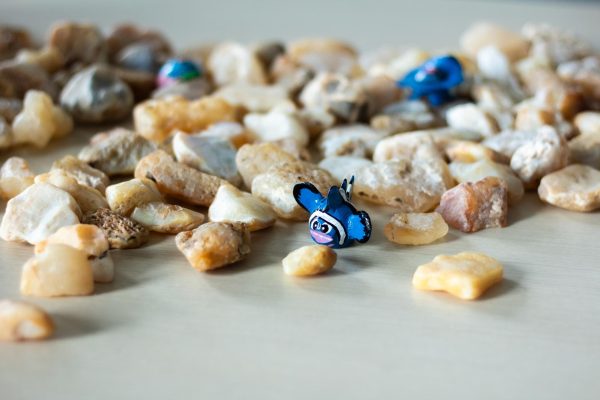
The IPCC is a United Nations body working to assess climate change through a scientific lens. Wrathall was the lead author on the eighth chapter of the IPCC, Poverty, Livelihoods and Sustainable Development. One of his roles was looking at how migration was treated throughout the report, allowing him to get an overview of it all. That connects to the research he now does within migration.
Wrathall found himself in the Peace Corps as a young adult, where he spent a year in Ecuador and Peru during his undergraduate degree in international development.
“When we think about the century, what is going to mean for (kids)? And I think about it all the time, just think about it constantly. How do we build a safe society for these kids?” Wrathall said. “It’s a huge motivator, thinking about it all the time.”
Wrathall teaches climate change adaptation for undergraduate students and graduate students. He also feels that climate change should be a topic in each class taught at the university. According to Wrathall, it is not a field of study specific to the sciences but also other colleges.
“We need to connect to ourselves. We need to connect to each other and we need to connect to nature,” Wrathall said. “Every single tool that we have at our disposal from like all of our research capacity, all of our teaching capacity, everything ought to be oriented towards helping the people in this state, resolve the issues of injustice.”
Wrathall was able to explore those connections while working on the IPCC. Authors of the IPCC are selected based on experience and research areas. During his work on the IPCC, he focused a lot on allowing impacted voices to be heard.
“Last year, there was this beautiful alignment of that bottom undercurrent of vulnerable people, their voices talking about what is happening, and the sort of high level UN science and policy work on climate change,” Wrathall said.
Laura Peters worked with Wrathall during her PhD at OSU and now she works alongside him as an associate professor in the same college at OSU. While their research and work do not overlap a lot, they interact and work with each other daily.
“David is such a curious, interested person. Not just interesting, but he gets really interested in stuff,” Peters said. “He wants to understand how things work is really wonderful in collaborative contexts as well because there’s just like this momentum toward idea generation.”
She finds that often, many scientists get stuck in their field or area of study. They often fear or avoid change in their research and stick to what they know.
That openness to growth is what makes Wrathall such an incredible person according to Peters, he is always open to being wrong and changing his mindset about something.
“He’s really grown a lot in really cool ways and that’s really wonderful, like allowing yourself to grow and change throughout your career is something that’s that keeps you interested,” Peters said.
Wrathall finds a way to not only consider the future generations, but connect to them as well. He knows that climate change is a heavy subject to a lot of college students and acknowledges that going into these discussions.
“He led us in meditation, body awareness and other techniques to cope with these big feelings in a mindful and healthy way. This was such a unique and positive experience that I can only recommend others to take his classes,” said Jo Nelson, a geography major at OSU who took Wrathall’s Climate Justice course.
In his current course with Wrathall, Climate Change Impacts, Nelson can see that Wrathall has passion and love for the world around him, he finds time to talk to his students outside of lecture to further delve into topics.
“David is an exceptionally caring and dynamic professor that genuinely cares about the wellbeing and success of his students,” Nelson said. “(He) has lived experience with the topics he teaches about, thus (makes) the class even more compelling and intriguing.”

